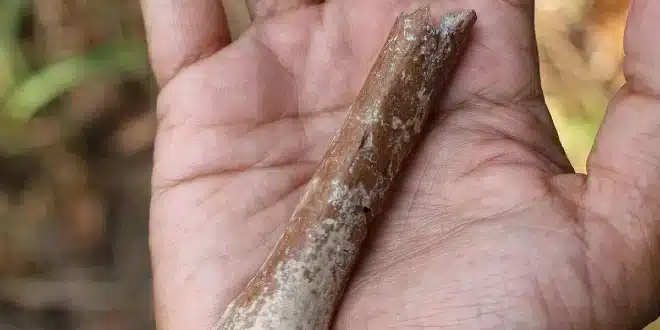Twenty years ago, scientists discovered fossils of an early human species, nicknamed “hobbits,” which were only about 3.5 feet (1.07 meters) tall. However, a new study now suggests that the ancestors of these “hobbits” were even shorter.
“We did not expect to find smaller individuals from such an ancient site,” said Yousuke Kaifu, the lead author of the study and a professor at the University of Tokyo, in an email to the Associated Press.
The original hobbit fossils date back to between 60,000 and 100,000 years ago. The new fossils were excavated from a site called Mata Menge, located 45 miles from the cave where the first hobbit remains were found.
In 2019, researchers discovered a jawbone and teeth at the new site, leading them to suspect that these early humans might have been shorter than the hobbits. Further analysis revealed that these ancestors, who lived 700,000 years ago, were about 2.4 inches (6 centimeters) shorter.
“They’ve convincingly shown that these were very small individuals,” said Dean Falk, an evolutionary anthropologist at Florida State University, who was not involved in the research.
The 700,000-year-old fossilized remains are attributed to Homo floresiensis, an extinct species of very small humans who once lived on the Indonesian island of Flores, according to a study published in the journal Nature Communications on August 6.
“Acquiring a large body and brain and becoming clever is not necessarily our destiny,” Kaifu told Live Science. “Depending on the natural environment, there were diverse ways of evolution not only for animals in general but also for humans.”
Kaifu explained that the Mata Menge fossils showed that the extremely small body size of Homo floresiensis evolved within the first 300,000 years of their history on the island and was maintained for more than 600,000 years. The reasons behind this prolonged small body size remain a challenging question.
“We tend to think that humans are special among animals. But the evidence from Flores indicates that we humans are, like other animals, also subject to natural selection and could evolve in unexpected directions,” Kaifu added.


